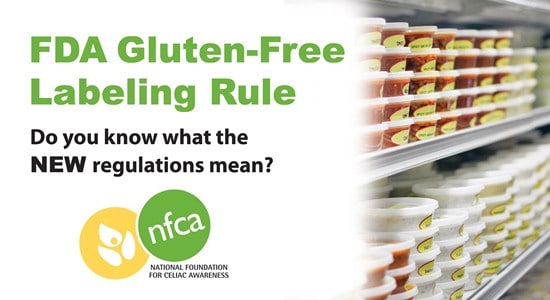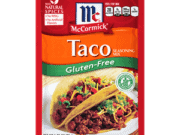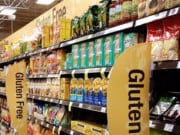via Associated Press
WASHINGTON – Starting this week, "gluten-free" labels on packaged foods have real meaning. Until now, the term "gluten-free" had not been regulated, and manufacturers made their own decisions about what it means.
This new requirement is especially important for people who suffer from celiac disease and don't absorb nutrients well. They can get sick from the gluten found in wheat and other cereal grains.
Under a rule announced a year ago, food manufacturers had until Tuesday to ensure that anything labeled gluten-free contains less than 20 parts per million of gluten - ensuring that those products are technically free of wheat, rye and barley. That amount is generally recognized by the medical community to be low enough so that most people who have celiac disease won't get sick if they eat it.
Currently, wheat must be labeled on food packages but barley and rye are often hidden ingredients.
Celiac disease causes abdominal pain, bloating and diarrhea, and people who have it can suffer weight loss, fatigue, rashes and other long-term medical problems. Celiac is a diagnosed illness that is more severe than gluten sensitivity, which some people self-diagnose.
Ten years ago, most people had never heard of celiac disease. But awareness and diagnosis of the illness have grown exponentially in recent years. It's not entirely clear why. Some researchers say it was underdiagnosed; others say it's because people eat more processed wheat products, such as pasta and baked goods, than in past decades, and those items use types of wheat that have a higher gluten content.
The standard will ensure that companies can't label products "gluten-free" if they are cross-contaminated from other products made in the same manufacturing facility. The rules don't apply to restaurants, but the Food and Drug Administration is encouraging them to comply.
Gluten-free foods have become big business in the last several years. Millions of people are buying the foods because they say they make them feel better, even if they don't have celiac disease.
Alice Bast of the National Foundation for Celiac Awareness says the gluten-free trend has been good for those diagnosed with celiac because of the increased variety of options in the grocery store. But she says it also may have prompted some companies to lose focus on the people who need those foods the most.
The new regulations are "raising awareness that there is a disease associated with the gluten-free diet," she said.
Steve Hughes, CEO of Boulder Brands, which owns leading gluten-free food companies Glutino and Udi's, says his company's products all have 10 parts per million of gluten, less than the new standard. He praises the FDA regulations for being a "stake in the ground" that can increase the integrity of the gluten-free market.
"If consumers can't have confidence in the products long-term, it's going to hurt the overall trend," he said.








Suzanne fanning says
Please spell the name correctly. Coeliac
G-Free Foodie says
Hi Suzanne, in the US "Celiac" is accepted. Thanks.